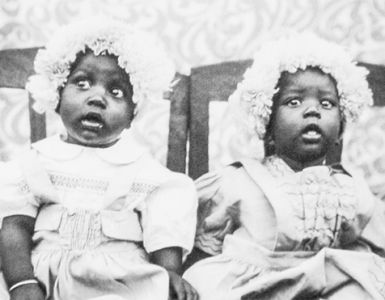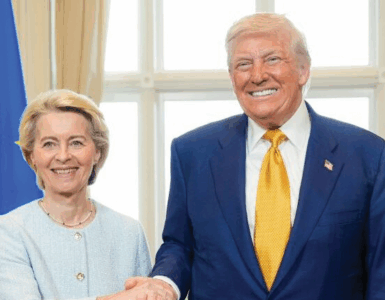GRAND PLAN:For Ricardo Maarman, author of the book The Subversion of South Africa, the pattern of the ANC’s failure is nothing short of subversion. His book provides a chilling account of how politicians, judges, mainstream media, and so-called civil society have all been corralled by foreign and domestic capital to undermine the SA…
By Professor Sipho P. Seepe
The idea that South African democracy has been subverted would typically challenge our political beliefs. Despite being a nation known for having an exceptional constitution, Ricardo Maarman suggests in his provocatively titled book, The Subversion of South Africa, that this is indeed the case.
The book is both bold and relevant, with its timeliness evident in the prologue. Maarman correctly argues that “South Africa finds itself in a state of political turmoil as the country prepares for its seventh national election (2024), since the so-called end of Apartheid. For the first time in the history of South Africa, the public is bewildered, unsure of what became of the promised utopia called democracy”.
With corruption looming large as the defining feature of South Africa under the current administration, one is tempted to think that this is what Maarman is referring to. But his gaze is broader than that. Instead, he takes us through a historical tour of hundreds of years, long before South Africa’s post-1994 political dispensation.
As a way of restricting and providing clarity, Maarman explains: “Subversion refers to the diversion of a country from the pursuit of its core and noble national interest towards a deceptively calculated foreign interest. This occurs clandestinely through infiltration and corruption.”
With so much promise expected and expressed in the post-1994 political dispensation, the book provides an insight into what went wrong. Maarman does not waste time in taking us into the operations and intersection of money and politics. In doing so, the reader is introduced to individuals, countries, institutions, and multinational corporations that shaped South Africa’s socio-economic trajectory in the last four hundred years. The reader is introduced to the role played by the Dutch United East India Company (VOC) and the Oppenheimer family’s role in shaping South Africa’s body politics.
Early in the book, Maarman makes several explosive assertions to entice and build excitement. Some assertions are couched as matters of fact, others are speculative with the rest leaving room for plausible deniability. These include. The NP apartheid system and ANC affirmative action were a result of the manipulation by the Carnegie Foundation.
Steve Biko was murdered not only because he was a threat to the apartheid government, but that he was also a threat to the captured ANC. Cyril Ramaphosa is most likely an Oppenheimer cabal puppet. The Gupta State Capture was a soft coup, and the real state capture was by the Oppenheimer cabal.
As with all historical treatises, Maarman gives us a glimpse into the political personalities that shaped our history. The likes of General Jan Smuts, Barry Hertzog, DF Malan, and former apartheid prime ministers Verwoerd, BJ Vorster, and PW Botha make the list. The reader is also introduced to the likes of Walter Sisulu, Oliver Reginald Tambo, Robert Mangaliso Sobukwe, Nelson Mandela, Steve Biko, and Chris Hani.
Maarman does not limit his gaze to how these personalities shaped history or were shaped by history, he also delves a little deeper into inter-personal interactions with others. In a way, these interpersonal interactions helped to shape and develop some of the leaders.
For instance, the Nelson Mandela that many came to know is completely different from the Mandela that Sobukwe knew. Maarman reminds us of how Sobukwe described Mandela: “Mandela is one man I never really knew personally until I was already in prison. We were never friendly, although I had heard him address meetings and had met him. He is a very ‘arrogant’ man. He lacks a common touch…. Mandela was strong among the leaders, although we always recognised Tambo as superior in intelligence.
“Mandela had a way of attacking people very viciously if they disagreed with him, and were a ‘smaller’ person than himself. He could reduce them to a ‘shrivelling mass’, then he would ‘pat them on the head and draw them to him’, and thereafter they would be his men, always deferring to him, looking up to him. If he came across any man who wouldn’t look up and defer to him and acknowledge his superiority (e.g. myself, implied), then he wouldn’t have anything to do with that person.”
The Subversion of South Africa is perhaps the most stinging rebuke of the ANC government since it took office in 1994. Maarman provides an encyclopaedic treatise of South Africa’s past and current reality. It comes at a time when rampant crime, unemployment, corruption, degrading poverty, and economic stagnation have become common descriptors of the country.
This is a far cry from Nelson Mandela’s “ideal of a democratic and free society in which all persons live together in harmony and with equal opportunities.” If anything, South Africa has entrenched its position of being a poster child of global inequality. While others have attributed the ANC government’s catastrophic mishandling of South Africa to sheer incompetence and corruption, Maarman goes much further.
For him, the pattern of failure is nothing short of subversion. His book provides a chilling account of how politicians, judges, mainstream media, and so-called civil society have all been corralled by foreign and domestic capital to undermine the South African state.
Given the current administration’s seeming intent to reverse any gains made since 1994, his account rings depressingly true.
* Professor Sipho P. Seepe is a Higher Education & Strategy Consultant. The article published courtesy of online publication The Telegram
A SPOTLIGHT ON BATSWANA’S COLOURFUL LIFE
ANTHOLOGY: What started as research by a Caribbean academic while posted at University of Botswana manifested into a book of fascinating short stories…
By Amanda Ngudle
This anthology of nine vastly different short stories is a bouquet packed with pertinent human nature questions to ponder.
The most colourful is the first, titled A Mother’s Milk, which weaves a story of a scholarly world versus African mythology. Told from the third person, Margo is a Trinidadian PhD student looking for interview groups for patrimony research and is faced with ginormous hostility from the Head of Sociology at the University of Botswana, Dr Phampa who, among other obtuse habits, insists on calling her American despite several reminders.
He tells her the Batswana people are reticent people and that he doubts if they will play ball. But, after a suggestion of throwing in a food bribe, Margo’s luck changes and she even spots her star in research in the form of Charity.
Once they sit down and Charity has ordered chicken and chips, accompanied by a can of Coke, she plaits her what can only be categorised as folklore and the narrator tries to convince her that the story happened, despite its ridiculous nature.
Of course, Margo is left dumbstruck. This is the reason she had insisted to Dr Phampa that she wanted a middle-class group.
Her disappointment in the outcomes of the interviews does not take away the colourful community aspect of the Batswana life that the author paints so effortlessly – if fact, you would think of her as a community member.
From it, the author carves amazing characters and their profiles. She achieves the same stripes from the following stories like Double Barreled and A Bed on Bricks. The stories are powerful.
One unpacks the burden of the haves in the world of the have-nots, secrets and dire ramifications of what cannot be undone. Another is a story of an interracial couple that is not official and puts the other in a predicament.
For a while, the woman thinks her Canadian boyfriend could be her meal ticket until they are faced with a complex circumstance which unhinges Kent and from that one experience Aina is left sure that she does not want a future with this man.
All in all, one may argue that the questions have been raised since the dawn of time but the devil is in the way that these questions are raised. MA Kelly is a brilliant story teller from Manchester, England and has worked in a Zoo, then veterinary nursing before studying film theory in Namibia.
* A Bed on Bricks & Other Stories by M.A Kelly – Modjadji Books R260



































